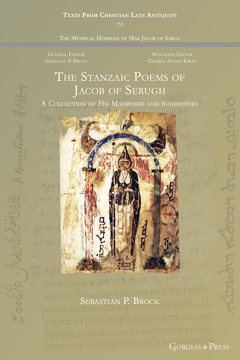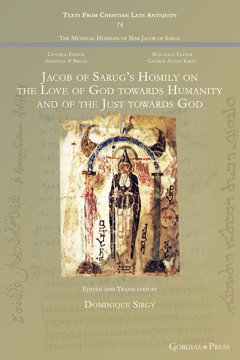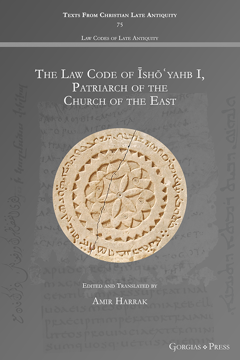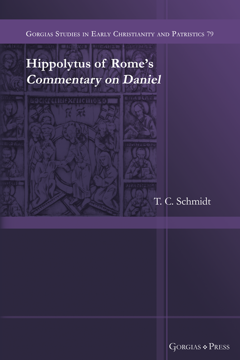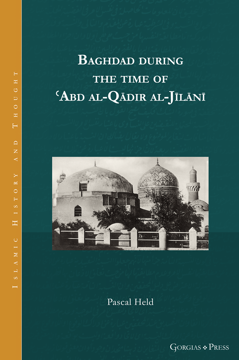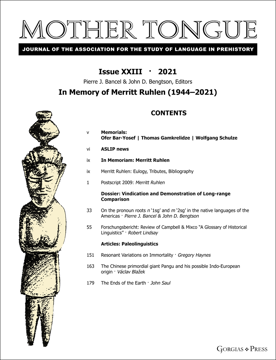The Stanzaic Poems of Jacob of Serugh
A Collection of His Madroshe and Sughyotho
Series: Texts from Christian Late Antiquity 72
ISBN: 978-1-4632-4430-9
Although the verse homilies of Jacob of Serugh are well known to lovers of Syriac literature, his stanzaic poetry, in the form of madroshe and sughyotho, have been largely forgotten. This volume contains twenty-five poems preserved in their complete form and attributed to Jacob in old manuscripts of the sixth/seventh to ninth/tenth century preserved today in the British Library, but largely originating from Deir al-Surian in Egypt.
$59.00 (USD) $35.40 (USD)
Jacob of Sarug's Homily on the Love of God towards Humanity and of the Just towards God
Edited and Translated by Dominique Sirgy
Series: Texts from Christian Late Antiquity 74
ISBN: 978-1-4632-4432-3
Jacob of Sarug's homily chronicles the unravelling of God's love in sacred history and the inability of humankind to return God's love and grace.
$28.00 (USD) $16.80 (USD)
The Law Code of Īshōʿyahb I, Patriarch of the Church of the East
Edited and Translated by Amir Harrak
Series: Texts from Christian Late Antiquity 75
ISBN: 978-1-4632-4434-7
During the 6th century AD, Īshōʿyahb I, Patriarch of the Church of the East, produced a code of law dealing with questions raised by Bishop Jacob of Darai in the Gulf. Perennial Church issues include priestly conducts, ecclesiastical rankings, and ordinations. Legal matters for the faithful concern wills, marriages, vows, lending at interest, and swearing. Most interesting are names of church architecture that the Code gives, including bema, diaconicon, and qestroma, terms that are still used today.
$39.00 (USD) $23.40 (USD)
Hippolytus of Rome's Commentary on Daniel
ISBN: 978-1-4632-4436-1
In his Commentary on Daniel, the earliest extant Christian commentary, Hippolytus interprets the deeds and visions of Daniel against the backdrop of contemporary Roman persecution and eschatological expectation, thus providing much information about Christian affairs in the early third century. Throughout the commentary Hippolytus further discusses his distinctive Logos theology and also makes mention of various liturgical practices evolving baptism, anointing, the celebration of Easter and perhaps the date of Christmas.
$37.00 (USD) $22.20 (USD)
Baghdad during the time of ʿAbd al-Qādir al-Jīlānī
By Pascal Held
Series: Islamic History and Thought 29
ISBN: 978-1-4632-4438-5
A study of the life and background of ʿAbd al-Qādir al-Jīlānī, putative founder of the Qādiriyya order, investigating the sources for his life and attributed works. The book seeks to elucidate the ideas of al-Jīlānī, and to formulate a picture of the most prominent trends of pious and mystical thought in Baghdad during the twelfth century, providing a cultural and geographical angle to the study of Islamic mysticism and piety.
$115.00 (USD) $69.00 (USD)
Mother Tongue (XXIII)
(XXIII) 2021
Edited by Pierre J. Bancel & John D. Bengtson
Series: Mother Tongue 23
ISBN: 978-1-4632-4441-5
Journal of the Association for the Study of Language in Prehistory.
$55.00 (USD)
